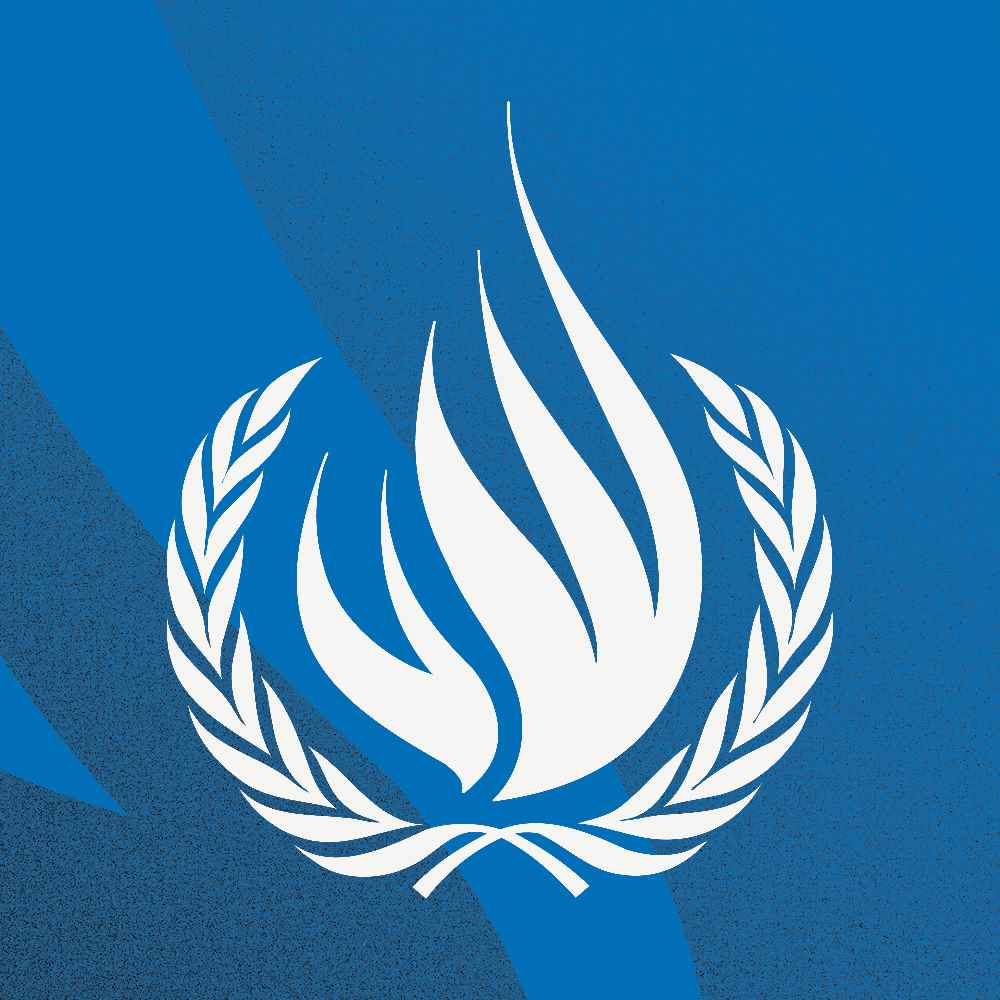
tella is my Mama Africa, because she has always fought for women!” shouts Hanifa Nagujja, a 28-year-old cook at akatale kabalema or “market of the disabled” in the heart of Kampala, Uganda’s capital.
Nagujja is one of about 15 women in gingham aprons who are jumping in the air in elation, clapping, finger-clicking and ululating as Stella Nyanzi weaves her way through bubbling pots of groundnut sauce, beans and matooke. Some of them chant “Nnalongo! Nnalongo!” – the name given to mothers of twins in Buganda culture.
Nyanzi’s twin boys, Wasswa and Kato, 13, and her daughter, Baraka, 15, trail behind their mother holding a roll of Kampala Woman MP campaign posters and a large bucket of paste. The teenagers look tired; their mother’s life has been a whirlwind the past few years, from her naked protests to stints in police cells and prison.
Nyanzi is a feminist anthropologist focused on African sexuality and gender, including work with LGBT+ communities – a controversial area of research in Uganda. She has become better known for her writing and activism.
In February, she was released from Luzira prison, where she had been detained for almost 16 months for writing a poem about Ugandan president Yoweri Museveni’s mother’s vagina. Posted on Facebook like much of her other writings, the poem uses graphic language to criticise Museveni’s near 35-year rule – a subversive tactic known as “radical rudeness.”
Now, Uganda’s rudest feminist is entering politics as the Forum for Democratic Change (FDC) opposition party candidate for Kampala Woman MP (a parliamentary seat in the city).
The Guardian joined her on the campaign trail on a day which took her through the bustling market, into the office of the city’s lord mayor (a colonial throwback), up the stairs of the rundown FDC constituency office, and inside the shiny studios of Radio Simba, a Luganda language station hosting a show with Nyanzi and her opponents.
When Nyanzi’s first opponent arrives and greets her warmly, she jokes: “We’re not supposed to be friends!” and then starts growling at her. “I’ve been advised by my strategists to be more palatable. Not everyone can bite my cookie,” grins Nyanzi, whose Facebook posts have become less risque during her political campaign, “but if it’s necessary I will use that [graphic] language.”
Nyanzi recounts her recent TV appearance when she attacked Museveni. “I said something in Luganda which basically translates as, ‘I won’t groan in pleasure to a man who is fucking me badly’.
“They were horrified and scandalised!” While she acknowledges that some voters are put off by such exchanges, this style does win her support. “I think people who got the image, however graphic, understood it … I’m talking about abuse of power, and how we as Ugandans respond to it.”
As we walk through the market under the blazing sun, some vendors shout another name Nyanzi is often called – Nnalongo ow’ennenne – meaning “a mother of twins with a big vagina”, an epithet with roots in a traditional naming ceremony for twins.
“The name kind of works when I’m with people who don’t take life too seriously. It’s good fun, and by using the name people are allowing themselves to be invited into my obscene graphic language, and they’re saying: ‘We are comrades.’”
Nyanzi listens to concerns about infrastructure and sanitation, and street traders talk to her about Kampala Capital City Authority’s (KCCA) crackdown on their livelihoods. While some members of the public tell her they will only vote for Shamim Malende, her opponent representing presidential candidate Bobi Wine’s party, most seem keen on Nyanzi.
“Stella fought for university students when their tuition fees were being raised,” says Francis Katende, 54, a one-legged hat seller. “She has been fighting for the underprivileged for a long time, so we know she will fight for the disabled too.”
Selling biscuits on the roadside, Hanifa Nantegga, 32, says that, “Stella is going to win this election because she is a woman, and a very vocal one. Even before she contested she was fighting for the people and was vocal about all the major issues we face.”
That “vocal” nature is what Nyanzi believes is her strength: “The best I can do for voters, such as the ones in the market who told me about issues with taxes, sanitation, schools, is voice their issues in parliament.” But she is under no illusion of how much direct change she can enact as an MP. “I don’t think parliament will put food on their tables, or remove Museveni from power, or stop the police brutality,” she admits. “But it will allow me to go and speak with clarity about these issues, and I will be taken more seriously than just ‘that protester’, ‘that activist’, ‘that Facebooker’.”
Nyanzi hopes that being an MP will protect her “ability to stand up and criticise the dictator”. Since the start of Uganda’s Covid lockdown in March, she has been arrested five times, mainly for staging or taking part in protests. Her assistant, Roy Rugumayo, shows scars on his wrists caused by tight handcuffs during a recent detention.
“All of my trauma from prison has prepared me to face police arrests and detention much more easily,” says Nyanzi, but her children have staged their own protests against this at home, writing her essays and “holding conferences” outlining their concerns about her work. “‘Why are you sacrificing so much for Uganda?’ they ask. Uganda doesn’t care, Uganda is not your child.” Each time she is arrested Baraka is on the phone asking, “What does she need? Panties? A toothbrush? And then she packs them and gives them to my driver. I feel sad, but she’s quickly taken charge.”
Protests are Nyanzi’s comfort zone – it is electoral politics that seem daunting.
Previous Ugandan elections have been marred by allegations of vote buying, rigging and fraud. Speaking into a microphone at the market for disabled people, Nyanzi tells the vendors she has no money to give them – often an expectation – but that she “pledges her service”.
“If somebody pays for your vote, that person will not remember you when they go to the parliament, because they have already paid you,” she says. But she will remember them if she wins, she says, and even gives out her number.
At the FDC constituency office, wood-panelled walls give a sense of grandeur – but the room is basically empty and the ceiling has damp stains. Posters of the party’s former leader, Kizza Besigye, are stuck on windows. “I thought it would be interesting for you to see the office because for me it suggests two things,” Nyanzi says. “Either we are very poor, and we cannot afford plush furnishings, or have been raided so many times it’s not worth investing in furniture and computers and stuff like that.”
Nyanzi’s strategists tell her that, “lots of people can vote you in, but you won’t be the winner because of rigging”. But they talk her through some practical ways to prevent rigging, such as hiring an agent at each polling station “to observe the process and receive tallies on our behalf”.
While she is grateful for the support of her small team, we talk about the fact that they are all men, and how well her personal values align with her party’s. “Three-quarters of my personal agenda would be thrown out by my party. If they knew, for example, that I want to interrogate the law around inheritance rights for women,” she says, listing gender, sexual minorities, reproductive health and police brutality as among the issues close to her heart.
These topics are not the focus for many Kampalans, but she has her own way of incorporating them. She has LGBT team members; her proposer for the nominations was a transgender man. “He’s in the voter’s register as Susan, but he appears as Noah. When we went to the electoral commission to verify our signatures I was just waiting for somebody to raise the issue,” she says, looking pleased.
For Nyanzi, the freedom afforded to an aspiring MP – to go on TV and radio and criticise Museveni without being arrested – is a win.
“We don’t know if it’s going to be successful, whether I’m going to win or lose. And I think for me, that is not the most important thing,” she admits.
“The important thing is that Stella Nyanzi was able to get released from jail, and she came and stood and contested as a member of parliament. That was a win.”
Additional reporting by Patience Bugiri











